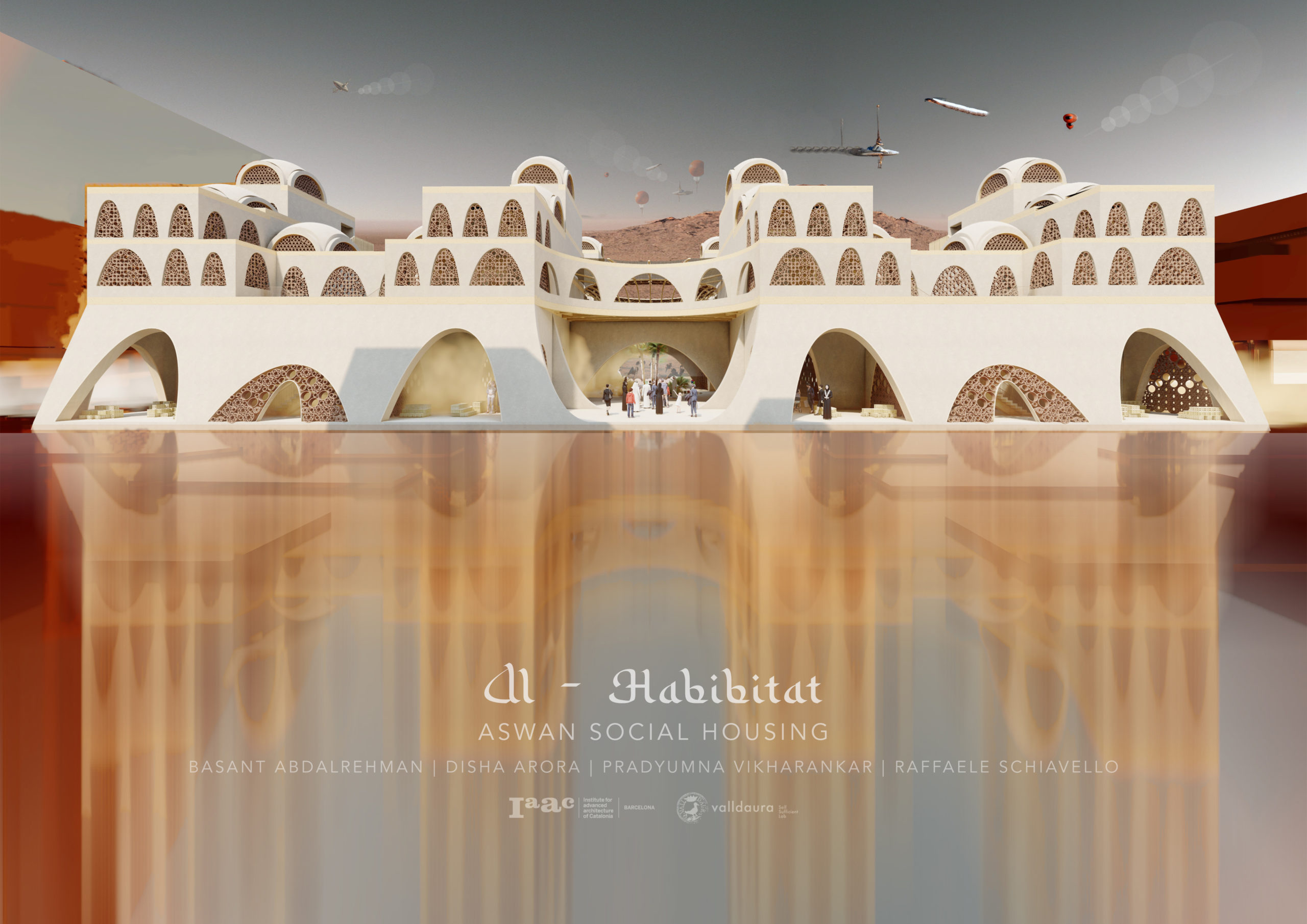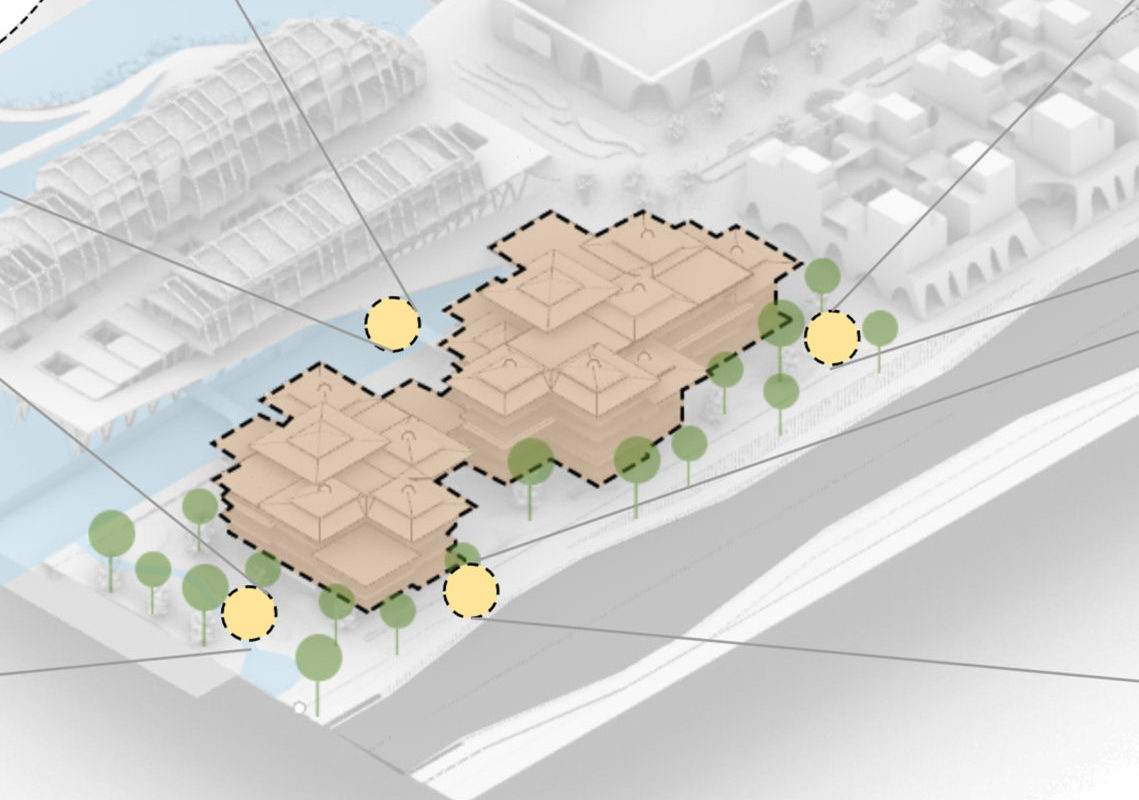During the first six months in the program, students are comprehensively trained in the principles of design and construction of advanced ecological buildings through a series of focused and intense modules, which include material production, thermal and metabolic building systems, ecological structures and façade systems and much more. After developing the necessary skills and a holistic understanding of advanced and ecological design, students collectively draft and build a full scale ecological building prototype.
Course: MAEBB01 22/23 Urban Interventions
Today, cities face important challenges that can be synthesized in four kinds: climatic, social, economic and cultural. According to the UN, 679 of 1146 cities of half million people are vulnerable to tornados, flooding, drought, earthquakes, etc. Global warming and resource scarcity are worldwide problems. Gaia, our interrelated planet, offers no hide either from the urban concentration due to the demographic explosion and the metropolization of the world, which result in different urban diseases (congestion and overpopulation, poverty and exclusion, social segregation and stratification, loss of cultural identity…). Besides, contemporary cities need to cope with the impact of technologies (digital, AI, demand of functional ubiquity) and be as resilient as possible, since the city is an ecosystem in permanent mutation, always incomplete and where temporariness is the credo.
All of these challenges have been promulgated from international institutions as different goals our present generation needs to fulfill in the following years. In the United Nations’ 2030 Goals of Sustainable Development, the 11th urges to “make cities and human settlements inclusive, safe, resilient and sustainable”. Meanwhile, the New European Bauhaus reformulates the three Vitruvian principles into “beautiful, sustainable and together”. We can add many other visions and projects: the Green New Deal; “A World of Three Zeros” (0 carbon, 0 poverty and 0 exclusion), from 2006 Peace Nobel Prize M. Yunus, etc.
When we think of these questions and how they affect the final steps of design of an urban development, we like to be inspired by the pioneers of Ecology. Humboldt, Haeckel, Lovelock and others envisioned the Earth as a huge living organism where organic and inorganic matter were all connected. It is this all-inclusive approach to nature as a network of relationships where we want to build upon.
view Syllabus & Faculty



